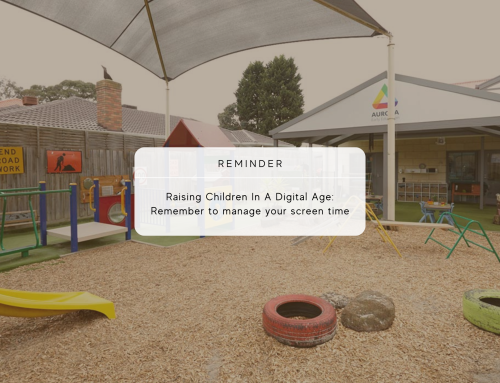Aurora aims to provide a holistic environment for our children that is constantly evolving to suit their learning and behavioural changes as they develop. We stay updated with new information and research as much as possible and apply findings to our regular practices. Doing so helps us enhance our approaches towards our children and give them the best treatment they need to successfully develop.
Each month, we explore studies that have been published over the past month that reveal significant findings that could help parents and the early education community. In July 2021, these studies explored new technology measuring children’s attachment to their caregivers, the various effects of the pandemic on young children, and how socioeconomic backgrounds impact a child’s Language development.
New machine learning measures children’s attachment to caregivers
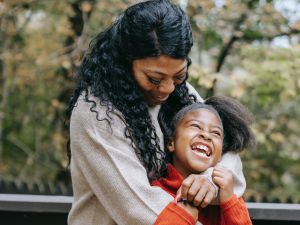
The nonprofit publication; PLOS ONE, issued a study by researchers from the University of Glasgow that used a machine to measure the attachment children have to their caregivers. The team of child mental health and computing science experts created the School Attachment Monitor (SAM) computer program that uses smart sensors to assess attachment in children successfully.
The researchers used the SAM technology to develop a computer game that has the ability to perform large scale public health monitoring to measure and assess children’s attachment behaviours. This particular machine learning describes the strength of connections and emotional bonds between humans at a macro level, however, for this project, mainly attachment between children and primary caregivers were measured.
In our perspective, the attachment children feel is essential for their emotional development and aids in forming psychological stability and security. Therefore, this kind of research is significant as children experiencing a loss or disruption in this bond can cause major problems for their emotional and psychological development which is likely to affect their future relationships and behaviour. This new technology can be used to monitor public health or epidemiology, hence there are considerable possibilities for this at the population level.
Aboriginal community-based services had a great protective effect on children dealing with pandemic restrictions
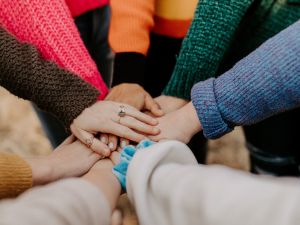
The University of Sydney’s Research Centre for Children and Families conducted a study essentially measuring the effect of childcare within the Aboriginal community on children and family members. Their report recognized that the Aboriginal community has had a “profound protective effect” due to the resilient community and kinship bonds that have been strengthened as a result of the COVID-19 lockdown measures.
The study focused on Aboriginal families residing in the Blue Mountains and Hawkesbury areas in Sydney. They found that older Aboriginal carers’ approaches to childcare maintained significant connections with older and extended family members and were extra mindful of the negative effects of social isolation.
The report that was detailed by the National Indigenous Times and covered by The Sector highlighted that these community-based services stepped up during difficult times and were more open and active in helping their members than the government departments did. Therefore their efforts were greatly received and recognized by the community and more importantly, the children.
Aurora Early Childcare believes in enriching such community ties and therefore ensures we maintain relationships with our community and the different services they provide. It is important that our children are active members of their communities for this very reason. Communities provide significant support with deeper understanding and involvement of and with their members which improves their reception of help. At each of our centres, we make sure to include and give back to the community because we value their contribution and appreciate the protective effects they have on their members.
COVID blues can be healed with stronger relationships

A survey was conducted through Harvard’s Graduate School of Education by the Saul Zaentz Early Education Initiative to deduce the key to fighting young children’s COVID blues. It is no secret that the current climate has taken its toll on everyone in every part of the world, however, the most vulnerable of the lot are the children. Therefore, it shouldn’t come as a surprise when the survey found that the behavioural changes in the children in care were mainly triggered by the disturbance that came with the pandemic.
Researchers suspect these feelings can be treated with the strong relationships and support systems they have available to them. Children’s support systems are extremely vital in times like these as they will aid in rebuilding social and emotional skills as well as in providing stimulating support for academic achievement.
This study found that 77% of the behavioural changes observed by educators were recognized as aggression, temper tantrums, sadness, and anxiety and were plainly perceived as negative. Whilst others noticed some children becoming more responsible and ardent in their efforts to deal with the changes COVID-19 brought about. Co-author, Professor Stephanie Jones, mentioned that some children would certainly find it harder to learn academically without regulated emotional support and social interaction and said that it will take intensive commitment from parents and educators.
According to one of the educators in the survey, when returning to the classroom setting, tighter class sizes during this pandemic is likely to help some children remain calm and focused. Professor Jones also said conducting this survey has helped outline that we need to pay attention to children’s feelings and behaviours especially as they go back to their regular school settings outside the home.
At our centres, it is imperative that we factor in our children’s personal feelings and help them express themselves so they can comfortably settle back into our environments. We deeply understand the disruption caused by the pandemic and want to maintain our strong relationships with our children to hopefully eliminate the negative social repercussions of the pandemic as much as possible. In order to tackle the behavioural changes in our children, we approach it holistically and try to shower them with emotional support and guidance so they express their feelings and are able to move forward with a refreshed outlook on learning and life.
Less time spent at formal early education because of COVID restrictions has impacted child development
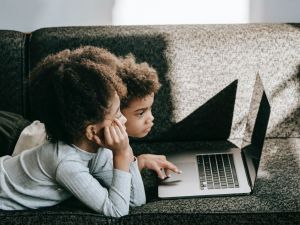
Another study surveyed 570 parents of children two to four years old for a Sutton Trust Report which explored how less time spent in formal early education can affect children’s development.
With COVID-19 restrictions, more than half of the parents from the sample felt their children’s social and emotional development had been affected negatively. And nearly a quarter of these parents felt that their children’s language development had suffered. Along with that, one in five parents were worried about the physical development of their child due to the lack of physical movement in the home-learning setting.
The parents were asked how frequently their child’s behaviour changed – whether it be following instructions, exploring their environment, or generally regulating their emotions. The researchers then analysed the parents’ observations of the progress their children made in different learning categories and followed up later in the same year. In their follow up they compared the behaviours observed and found that regular attendance initiated greater development than others whose formal learning was more spaced out.
The results showed that the children who continued to attend nursery – regardless of their socioeconomic backgrounds, displayed larger boosts on their cognitive control, flexibility, and memory. And the overall data proved that significant time dedicated to early education strengthened their intellectual development even if they are following from a home-learning setting.
This is why we make sure the time away from our physical centre does not mean our children stop stimulating their minds Our home-learning resources help keep our children on the right path so their development continues. We make sure all aspects of learning and child development is catered to through our play-based approach which keeps both minds and bodies active.
Parents’ wealth gap can often result in a word gap for developing children
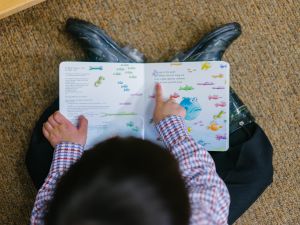
A study by the University of California Berkeley investigated the word gap in children from low-income families. Science Daily reported the findings of the study that was published in the Developmental Science Journal. They found that the parents with a wealth gap often led to children dealing with a word gap due to the lack of conversation at home. The study discovered that conversations would be down further around the month’s end which is usually when payday is.
The researchers narrowed it down to financial scarcity as parents with other forms of scarcity did not face the same word-gap issues as they did. In order to treat this, the researchers suggested that parents address the issue of income inequality before they put in the academic work towards heightening the possibility of academic achievement for their children. Therefore, with the financial strains communicated appropriately, parents will be able to outline the resources they need to parent the best that they can.
As a quality childcare service, we have families from all walks of life and strive to provide them and their children with the best resources to get them where they need to be. It is our priority to help each individual child d build on their life skills including the ability to converse.
Have a trip to our Childcare Centre in Melbourne CBD and Childcare Centre in Doncaster.
Sources:
https://nit.com.au/research-shows-kids-protect-elders-from-social-isolation-in-lockdowns/
https://zaentz.gse.harvard.edu/wp-content/uploads/2021/07/ELS@H-COVID-Report-July-2021_Final.pdf
https://www.suttontrust.com/wp-content/uploads/2021/05/The-parents-view.pdf
https://www.sciencedaily.com/releases/2021/07/210719153506.htm
https://journals.plos.org/plosone/article?id=10.1371/journal.pone.0240277



